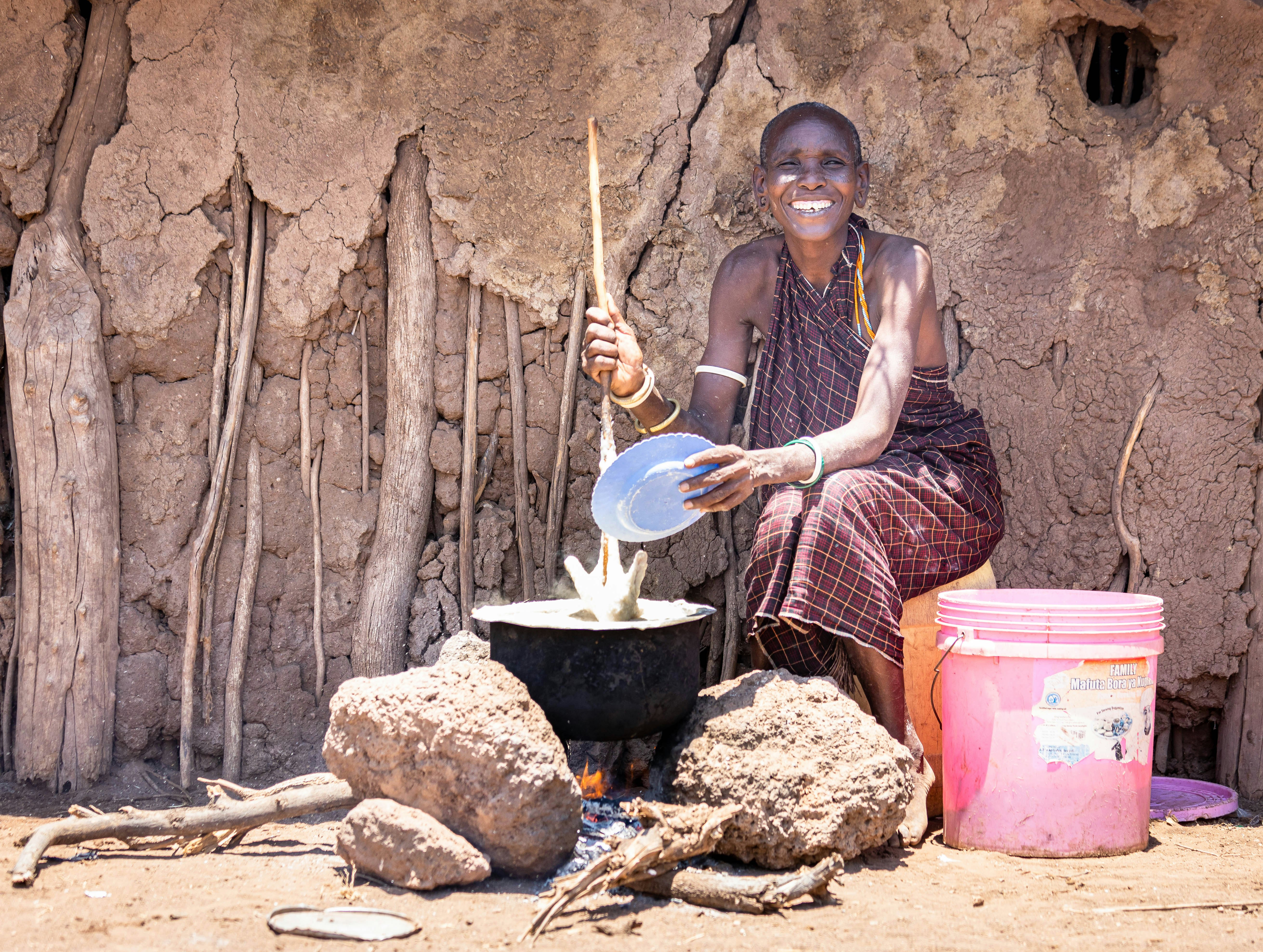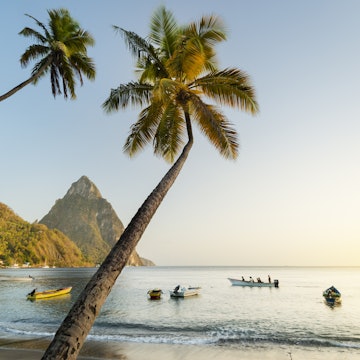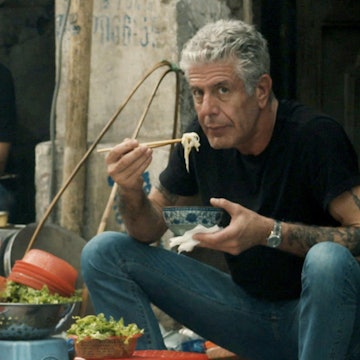

Tanzanian cuisine incorporates influences from across the globe © Fanfo / Shutterstock
Tanzania’s Swahili Coast has been a hub of seafaring trade since medieval times. Its cosmopolitan culinary tradition reflects a network of maritime links that once stretched across the Indian Ocean to Arabia, Asia and, more recently, Europe.
Fresh seafood, curries and biryanis dominate the Zanzibar Archipelago, where scents of coriander, coconut and cloves drift through timeworn alleys to evoke a time when the legendary Spice Island was a focal point of seafaring trade. Further inland, foods to try include sizzling streetside barbecues, filling donut-like mandazis and some exceptional Indian restaurants. Here's what to eat and drink in Tanzania.

Sample seafood fresh from the Indian Ocean
Tanzania is a seafood lover's paradise. The country incorporates 800km of mainland Indian Ocean frontage along with a generous scattering of offshore islands. As a result, coastal cities such as Dar es Salaam, Tanga and Zanzibar are great places to feast on prawns, lobsters, calamari and meaty fish such as red snapper and yellowtail tuna. Inland, charcoal-grilled whole tilapia – a freshwater fish associated with the Rift Valley lakes – is something of a specialty.
Where to try it: For informal outdoor eating in Zanzibar Stone Town, you can’t beat the oceanfront Forodhani Gardens, where a couple of dozen small stalls specialize in freshly barbecued seafood. A relaxed favorite in Dar es Salaam is Samaki Samaki – which literally, and aptly, translates as Fish Fish!
Celebrate the pan-cultural roots of Swahili cuisine
The cuisine associated with the Swahili people of the East African coast fuses Arabic, Indian, Malay and Portuguese influences into a unique whole distinguished by the liberal use of coconut products and homegrown spices such as cloves, cumin, coriander, cinnamon, chili and pepper.
Tangy Swahili curries are usually eaten with creamy wali wa nazi (rice cooked in coconut milk). Other trademark dishes include fragrant rice-based pilau, samaki wa kupaka (grilled fish with coconut sauce), and a spicy soup called urojo. Other Swahili foods to try in Tanzania include vitambua (small pancake-like rice cakes), mkate wa kumimina (a cake-like bread made from a similar batter) and mandazis (which resemble triangular doughnuts).
Where to try it: Zanzibar is the best place for Swahili cuisine. A longstanding favorite for those on a generous budget is a lingering evening at Emerson Spice, where you’ll enjoy a Swahili seafood set menu on one of the historic Stone Town’s tallest rooftops. Other reliable favorites are the House of Spices and Beyt al Salaam.

Relax street-side with a sizzling chipsi mayai
Unlikely ever to earn a dietician’s seal of approval, chipsi mayai (essentially, a French-fry omelet) is a ubiquitous Tanzanian street food institution and a firm favorite with travelers seeking an affordable carb-and-grease fix. Far tastier than it sounds, a plate of chipsi mayai is also very filling, dirt cheap and ideal for lining the stomach before or after a heavy night out!
Where to try it: Chipsi mayai seldom makes an appearance on restaurant menus, but you can try it at a market or street-side stall almost anywhere in the country.
Go vegetarian in Dar es Salaam’s old Hindu quarter
Kisutu Street, Dar es Salaam’s most characterful thoroughfare, is lined with temples and other buildings reflecting its longstanding association with the city’s small but well-established Hindu community. At the west end of the road, you’ll find a tight cluster of restaurants specializing in South Indian vegetarian fare, such as filling thaal platters or lassi drinks. These places cater almost entirely to a local Hindu clientele, so the atmosphere is informal, and prices are very reasonable.
Where to try it: The ever-popular Chowpatty Restaurant is a good choice if you want to wash down your meal with a beer. Directly opposite it, Chili and Lime feels a bit smarter and serves a colorful array of gooey sweets.
Spend a sociable evening at a nyama choma joint
For many Tanzanians, the perfect night out would involve hanging out with a few friends, sipping on cold beers and feasting on nyama choma (which, despite its rather exotic-sounding name, literally translates as "grilled meat"). As a result, heading to a nyama choma bar often provides an excellent opportunity to shoot the breeze with ordinary Tanzanians. Food-wise, expect barbecued goat ribs, chicken, or spicy mishkaki beef kebabs, usually served with ugali or chips and a small portion of kachumbari (a piquant salad made with tomato, onion, chili and other spices).
Where to try it: Nyama choma bars can be found in most towns. In Arusha, try Uzunguni City Park, or – for a booze-free Indian variation specializing in mouth-watering chicken tikka – the superb Khan's Barbeque.

Ditch the rice and potatoes to fill up with local staples
The most high-profile traditional food of Tanzania is the national dish, ugali. This porridge-like staple – made of maize meal, sometimes supplemented with cassava flour – varies in flavor and consistency, but it is usually quite stiff and should not be too dry or too sticky. Other popular staples include batoke (boiled plantain), which is most popular in the Uganda and Rwanda border regions, and a roti-like flatbread called a chapati. These staples are often served with maharagwe (boiled red beans) or a meat, fish, or vegetable stew.
Where to try it: At practically any hoteli (local restaurant) in Tanzania.
Enjoy a safari or seaside sundowner
Sundowner drinks are something of a tradition on a Tanzanian safari or beach holiday. A chilled Kilimanjaro, Serengeti or Safari lager tends to go down smoothly after a long day on safari in the dusty tropical heat. If you prefer wine, Tanzania does have a small vinicultural industry based around the capital Dodoma, but most visitors settle on South African imports, which tend to be of better quality.
Cocktails, sometimes made with a local spirit called konyagi, or alcohol-free mocktails, are a popular option for seaside sundowners. On the coast, a nutritious scene-setting non-alcoholic sundowner is coconut water drunk straight from the coconut.
Where to try it: Top coastal sundowner spots include Beach House Restaurant and Travelers Café in Zanzibar Town, as well as the Cape Town Fish Market and The Waterfront in Dar es Salaam.
Vegetarians and vegans
Traditionally, little in Tanzania is specifically billed as vegetarian, but you can find ugali or wali (rice), maharagwe (beans) and omelets pretty much everywhere. Peanuts (karanga), cashews (korosho), and fresh seasonal fruits and vegetables (including massive avocados) are widely available at fresh produce markets and are very cheap by international standards. Over an extended visit to Tanzania, it may be challenging to keep variety and balance in your diet and to get enough protein, especially if you are vegan.
Nowadays, most restaurants that regularly cater to tourists have a few vegetarian options on the menu, and larger cities such as Dar es Salaam, Zanzibar, Arusha and Moshi offer at least one dedicated vegetarian restaurant. Indian restaurants are numerous in Tanzania and generally have a lengthy vegetarian menu. Ethiopian restaurants, which can be found in Dar es Salaam, Zanzibar and Arusha, are recommended to vegans.















